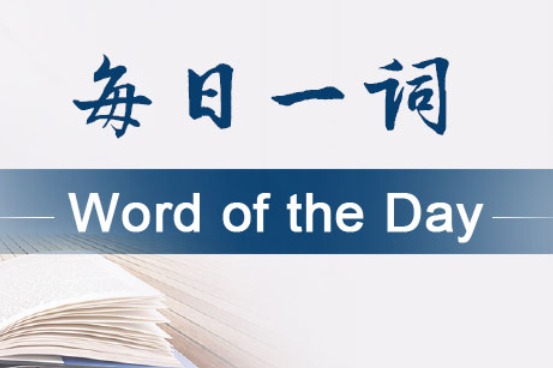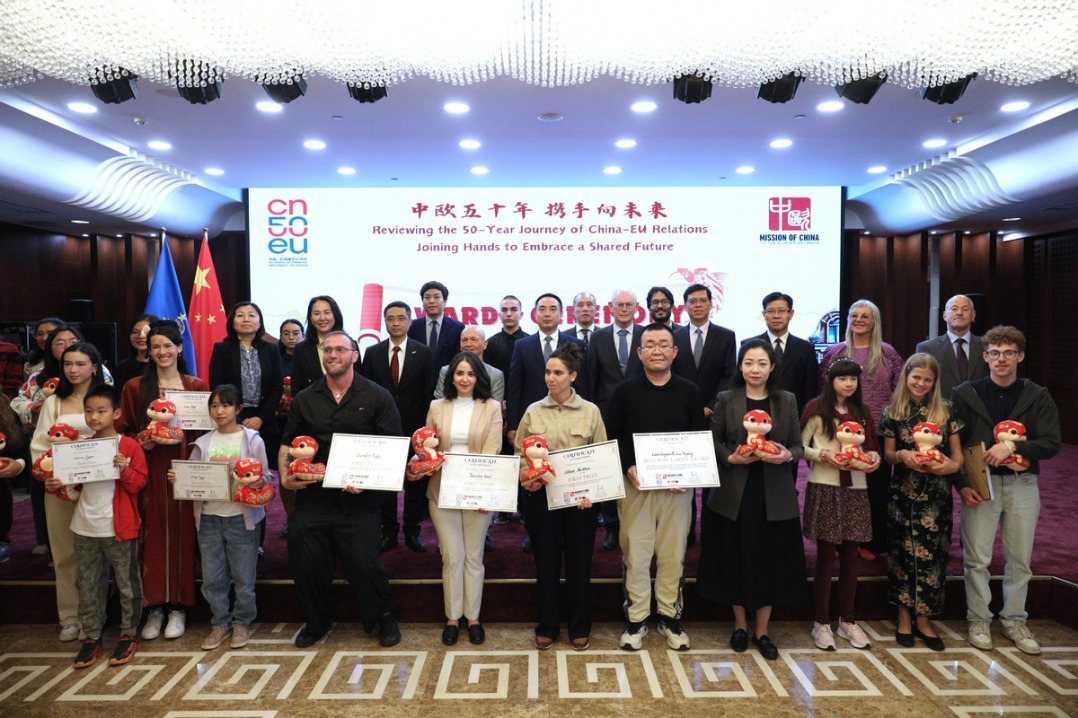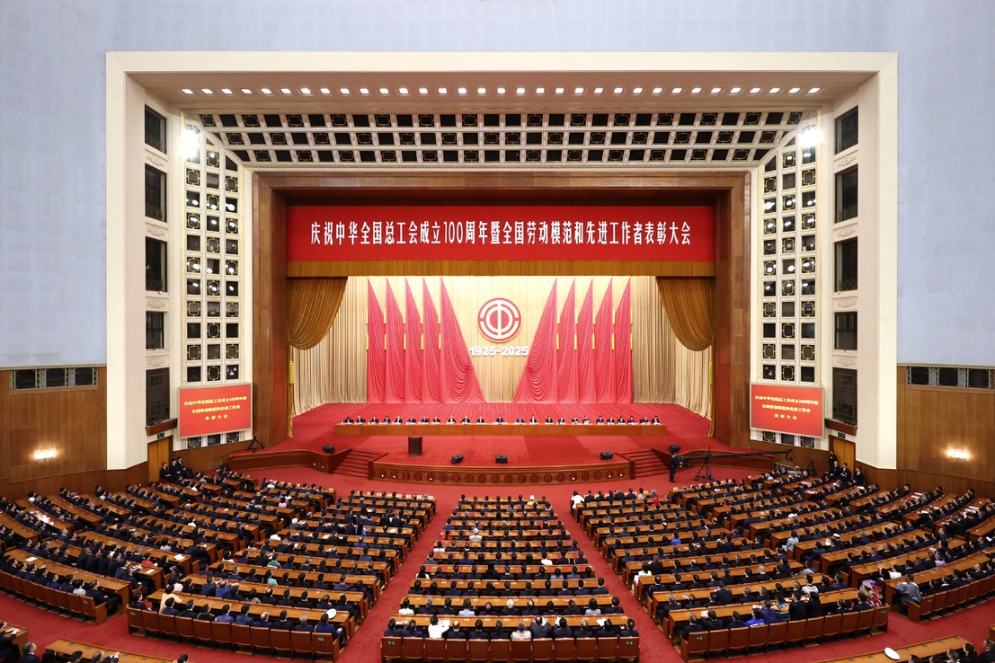Characteristic Chinese 特色汉语
China Today 2023-10-17 16:54


Learning is a part of Chinese culture. Let's review Chinese education from Confucius to today.
The word 学习 (xué xí), study, in Chinese is composed of two characters: 学 (xué), learn, and 习 (xí), practice. In ancient Chinese, 学 refers to a child learning calculation at home, and 习 to a bird learning to fly. Together they mean "exercise, practice." Learning in Chinese culture is practical and useful, hence the proverb 学以致用 (xué yǐ zhì yòng), learn to meet practical needs, opposed to the encyclopedic spirit of 学以致知 (xué yǐ zhì zhī), learn to know. Knowledge in China comes from 苦读 (kǔ dú), hard study, and inquiry, so it is called 学问 (xué wen), learning. As Voltaire said, "Do not judge a man by his answers, but by his questions." The highest state of study should be practice, just as Confucius said, "学而时习之,不亦乐乎?" (xué ér shí xí zhī, bù yì yuè hū), Is it not a great delight to learn and put knowledge into practice?
The character 学 can form a network of vocabulary related to learning, such as 学生 (xué sheng), student, which can also be called 学子(xué zǐ), and 学徒 (xué tú), apprentice. More examples include 学童 (xué tóng), schoolchild, 学龄 (xué líng), school age, 学期 (xué qī), semester, 学年 (xué nián), school year, 开学 (kāi xué), school starts, and 学位 (xué wèi), degree. In ancient China, students were also called 书生 (shū shēng), which literally means someone who makes a living by study. Teachers are 师傅 (shī fu) or, with the same pronunciation, 师父 (shī fu) and they are metaphorically regarded as 第二父母 (dì èr fù mǔ), the student's second parents.
However, learning does not necessarily mean that we learn good things: besides 学好 (xué hǎo), we can also learn bad things, 学坏 (xué huài). This is why Confucius speaks of 良师益友 (liáng shī yì yǒu), good teachers and beneficial friends, who believed that 三人行必有我师焉 (sān rén xíng bì yǒu wǒ shī yān), "If three men are walking together, one of them is bound to be good enough to be my teacher." In other words, everyone around you can teach you something.
Because of Confucianism, 老师 (lǎo shī), teacher, is almost a deified character in China. 老师 consists of the characters 老 (lǎo), old, a word indicating respect, and 师 (shī), teacher. Han Yu, a precursor of Neo-Confucianism as well as an essayist and poet during the Tang Dynasty, explained the meaning of 师 with the phrase 师者所以传道授业解惑也 (shī zhě suǒ yǐ chuán dào shòu yè jiě huò yě), the teacher is one who enlightens students, imparts knowledge and answers questions. From the Ming and Qing dynasties to the Republic of China, 老师 had been called 先生 (xiān sheng), literally meaning "people born before me," which is used to respectfully address knowledgeable people. At present, 老师 can also be used to address colleagues with senior experience.
The journey of a Chinese student begins in 小学 (xiǎo xué), elementary school, and progresses to 中学 (zhōng xué), middle school, which consists of 初中 (chū zhōng), junior high school, and 高中 (gāo zhōng), senior high school, and then 大学 (dà xué), university.
In China, university is usually described as hard to get in but easy to finish. Though 高考 (gāo kǎo), the National College Entrance Exam, is not as difficult as 科举考试 (kē jǔ kǎo shì), imperial examinations, it still draws great attention from the public. Getting first place in the National College Entrance Exam is often compared to coming top in the imperial examination. Failing it is like 落榜 (luò bǎng), failing the imperial examination. To prepare for this exam, Chinese students have to 死记硬背 (sǐ jì yìng bèi), memorize by rote. The three years of senior high school are seen as years of 苦修 (kǔ xiū), asceticism. Teachers often ask students to study assiduously and with tenacity.
上大学 (shàng dà xué), attending university, is considered to be the first step to success. After four years' 本科 (běn kē), undergraduate study, one will get a 学士 (xué shì), bachelor, 文凭 (wén píng), diploma. Postgraduate degrees include 硕士 (shuò shì), Master, and 博士 (bó shì), Doctorate.
In China, 学校生活 (xué xiào shēng huó), school life, is usually like family life. Chinese call the schools where they have studied 母校 (mǔ xiào), alma mater. Students who are older than you are called 学长 (xué zhǎng) for boys or 学姐 (xué jiě) for girls, and students of the following year are called 学弟 (xué dì) for boys or 学妹 (xué mèi ) for girls. Fellow students are called 校友(xiào yǒu), schoolmates, and classmates are 同学 (tóng xué), or 同窗 (tóng chuāng).
师生关系 (shī shēng guān xì), the teacher-student relationship, in China is highly valued. The student must 虚心学习 (xū xīn xué xí), be modest and eager to learn, and 学而不厌 (xué ér bù yàn), insatiable in learning. It is expected that teachers 诲人不倦 (huì rén bù juàn), do not tire of teaching. Teachers and students may 教学相长 (jiào xué xiāng zhǎng), teach and learn from each other. Study is endless, like 学海无涯 (xué hǎi wú yá), a boundless sea of knowledge. As we quickly forget, the Chinese say that 好记性不如烂笔头 (hǎo jì xing bù rú làn bǐ tóu), a good memory is no better than a rotten pen. So what are you waiting for, let's take notes!
Source: China Today
Editor: wanwan

















 英语点津微信
英语点津微信 双语小程序
双语小程序